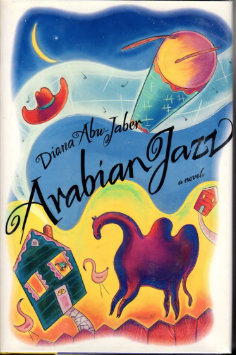Creative Writing Workshops: Online Novel Writing Course
” Art cannot be made by committee. Any such use of a workshop will be counterproductive. Thus the student who is “up” should not be looking for solutions from the other students or from the teacher. The student should be looking for problems in the text that he or she had not been aware of.” ~ Frank Conroy, The Writers Workshop

By Jennifer Lauck with commentary from staff
When I was new to creative writing and attended my first formal “workshop,” I was at Portland State University. The teacher, Diana Abu Jaber (the author of Arabian Jazz), told us that we would read a section of our writing out loud and then receive feedback first from her first and then from class members.
I had never heard of a workshop model before and frankly, was so terrified of sharing my work with class members (strangers) that I have no memory of reading what I brought in or the feedback those classmates gave. I think I blacked out. One thing I do remember is that Ms. Abu Jaber wrote, “This is the real thing,” on the last page of my submission. I also remember that those five words—from a published writer—kept me going through some pretty dark creative times when I struggled with doubt, confusion, and often overwhelming fear. “This is the real thing” was an endorsement that helped me keep the faith.
Since then, I have been a student in several “workshop” classes, have written and published four books and several of my essays while attending similar workshops. Today, I teach that format here at Blackbird. The workshop is efficient and remarkably effective.
HISTORY & PROCESS:
The workshop style began in Iowa in the mid-30s as part of the evolution of literature studies. Over the years, the workshop became a technique where writers either pre-submitted or “read-live” a portion of their novel, memoir, short story, or essay, received feedback from an instructor with a strong background in literature (often published, and skilled in group dynamics and teaching) and finally, heard from their fellow writers.
The workshop goal was and is to help the writer grow in a variety of interesting ways:
1) When the writer reads aloud, they “hear” how the work sounds. This portion of the lesson is for the writer alone and lets them hear the cadence and inflections of their voice and to “feel” how the language works.
2) The writer gets chance to see and feel the “energetic” reaction of the crowd. Once a writer is done reading (and even during), they get priceless feedback. Are people with them? Leaning in? Interested? Or are they looking at their phones? Yawning? Looking around the room? A writer can have all the best intentions when putting words on the page, but until they read aloud, they can’t be sure how those words land. Once a writer reads aloud, they know immediately.
3) A writer gets “used to” sharing work and, thus, making it real.
4) A writer receives expert (and affordable) feedback from someone with a great deal of experience, both as a writer and a student of writing. If you were to hire such a person, you’d pay upwards of a hundred dollars an hour but in a workshop format, you are paying a fraction of that, and you are (hopefully) getting the very best money can buy, meaning that the teacher leading your workshop is well read and has, at their fingertips, reference to many different books and styles of writing. They should also have a solid understanding of the various components of writing like point of view, tense, and grammar, and be comfortable editing and revising spontaneously and providing examples. This teacher should not necessarily re-write your work. That’s not their job. But they can re-write to provide an “example” which is invaluable to the writer struggling to master the form.
5) The writer is being taken seriously by a serious writer. Getting encouragement from friends and family is fine, but that kind of support isn’t necessarily as comprehensive (or as reliable) as what the writer will get from a professional. Also, expert feedback aligns the writer toward the expectations other professionals (literary agents, editors, publishers, and critics) will have and helps them be ready for the advice that will come should they pursue publication.
6) The teaching for the reading writer is also a teaching for everyone else in the room. It is a teaching-by-observation method; while we often cannot see problems in our work, we have sharp eyes for the problems in the work of others. Therefore, all the writers in the room learn by association.
7) When peers get to chime in, the writer learns they are not as alone in what is a highly isolating art form. Even if the reading writer doesn’t agree with what a peer says, or suggests, there is a wonderful feeling of camaraderie that comes from peer engagement and feedback.
 PEER FEEDBACK: What to say, how to take that feedback, how to integrate it, and other questions.
PEER FEEDBACK: What to say, how to take that feedback, how to integrate it, and other questions.
This is the one area of the writer’s workshop that deserves some additional attention because for all the benefits of the workshop, including peer feedback, this is also the area where writers can get tripped up.
In the best scenario, peer writers are supportive and show this support in the following ways:
Answer the questions that the writer asked before they read.
Commiserate with the effort and struggle of the writer in the process of growing their artistry.
Offer positive feedback.
Carefully offer constructive suggestions or insights the teacher might not have touched on.
NOTE: This last one is the tricky and challenging because they are “peers,” not teachers. If done wrong, there can be problems. It is then of the utmost importance that the reading-writer in the workshop develop some filtering skills that begin with the understanding that peers, no matter how well intended, often will point out weaknesses in the writing that reflect the shortcomings of their own writing. For example, the writer who rarely uses a scene to its best advantage might point out how the reading workshop writer can improve their scenes. And that’s tough to take for the workshop writer. It’s a bit like that adage: Do as I say, not as I do. And the reading workshop writer, tender and vulnerable and human, might become irritated by the seeming hypocrisy of such advice. Another pitfall is that peer feedback can tilt into personal declarations: “I had a grandmother who was just like this character,” or “I love cats too.” This is nice because of the camaraderie and shared humanity that can develop between peers, but this kind of feedback can also be perplexing, inconsistent, off-point, or stated in a way that leaves the writer feeling confused, judged, or even managed. Finally, there are times when peers decide they are teachers of literature and feel compelled to “lay down the rules/law.” If this peer is a teacher of literature, well published, has an editorial background in the business of writing copy, prose, stories..maybe what they offer has merit but more often than not, this kind of peer is a “type” known as the “know-it-all.” Try not to be that peer. And if you get feedback from a peer like that, try not to worry about it too much. Consider the source and move along. And remember: No writer, not even the primary teacher “knows-it-all” about literature because, like life, literature is always evolving. We can know what has come before and can know what is happening now, but even these are speculative “knowings” and based on our interpretations. For the reading-writer, try to take this kind of feedback with a “grain of salt,” and move on.
Advice and specific suggestions about taking peer feedback: (This is from a writing program at Iowa)
- Listen to and read all of the feedback. Don’t start revising. Just take it in.
- Be respectful. Even if you don’t agree with all the advice, try to see why your reader made the suggestions they did.
- Identify what you’re feeling—reading feedback, like any situation where you’re sharing your writing, can be emotional. Many writers initially feel frustration, anger, or denial after receiving feedback.
- Take a step back. Put the feedback down for a day or two to give yourself time to process and begin synthesizing the most and least important advice.
- If you’re feeling overwhelmed or angry about the feedback you’ve received, seek out friends or other people you trust to share your feelings.
- Return to the feedback. After you’ve put it down for a day or two, it’s time to come back and create a revision plan (see below).
- Ask for clarification. Don’t hesitate to ask your instructor or other readers if you have questions about their feedback.
Advice on integrating all feedback given in an online novel writing course/workshop to include peer advice: Synthesize and prioritize (This is from a writing program in Illinois)
- If you have multiple sources of feedback (e.g., your teacher, fellow writers, a consultant, or a friend), it may be helpful to synthesize the feedback, combining it in a summary or breakdown.
- Read through all the written feedback you have, trying to find patterns. For instance, are there many comments about structure, scene, and dialogue? What do multiple sources of feedback seem to agree on? Highlight any repeated pieces of advice.
- For small-scale suggestions (e.g., grammar corrections, suggestions of words to cut or change), decide whether you’ll make these changes first or save them for after you’ve addressed higher-order concerns.
- Perhaps make a chart, list, or Venn diagram including each person’s higher-order concerns (suggestions about structure, ideas, and patterns), to help you see the overlaps and patterns between them. For instance:
| Professor X | Peer 1 | Peer 2 |
| Work an attack sentence | Work an attack sentence | |
| Use more concrete and spec details | Use more concrete and spec details | Use more concrete and spec details |
| Make dialogue more character driven | Make dialogue more character driven | |
| Remember to escalate XXX | Remember to escalate XXX |
- You might not be able to incorporate all feedback. Make a list of your action items, prioritizing your top concerns (after you’ve synthesized the feedback you’ve received).
How much feedback should a writer expect from their workshop?
Sometimes you’ll receive almost no feedback, other times, you’ll be inundated. It’s best not to “keep score” on this matter. Instead, pay close attention to what is said in the workshop. Better: Record the workshop, replay what was said, and take notes. This way, you will not feel “upset” when someone doesn’t email their feedback on your pages immediately (or at all). Try to be forgiving of your classmates. Ultimately, it is not the responsibility of every class member to send you notes. It’s reasonable and customary to receive messages from about half and sometimes less, sometimes more. While you can expect and always should get notes from your teacher, the “after the workshop” notes (beyond what people said at the time) are a bonus and a gift that often contain what a particular writer might not have been able to vocalize during the workshop or reflections that came after the workshop. Again, these are a gift to you, not a given to expect every single workshop.
One of the saddest things that happens for some writers in a workshop is that they give a great deal to their peers. They line edit. They comment on every paragraph. And they throw everything they know and believe about writing down in the form of their own notes on the student’s pages. Then, when it comes time for them to read and receive feedback, they burn with resentment because their peers have not returned their well-intended generosity. This pattern is like rot in the bottom of a basket of apples. Soon, it’s rotting everything about the workshop, and by the time the teacher realizes what’s happened, that writer has left the group in a snit.
This was an issue of passion misdirected. And of process misunderstood.
A writer in a workshop must strive toward moderation in all things. Moderation in expectations of their peers is number one. And in themselves.
A writer in a workshop will also be served by a clear understanding of their goals. They are in a workshop to grow in their artistry, and to that end, they use the workshop and the insights but it’s important to remember that writing is a cumulative art form, meaning you learn by doing over time. No one in a workshop, not even your teacher, can truly take you across the finish line of expertise. That comes from writing, writing, and writing a little more.
What if everyone in the room doesn’t respond during the spoken part of the workshop or after?
In the same way, you might not get pages and notes back from your fellow students; people don’t always respond in the workshop, either. There are the talkers and the reflectors. The teacher should have the skill set to work the group dynamic and urge everyone to at least write some comment in the chat box, but in the end, try not to keep score about who speaks up or why. Try not to tell yourself stories about their level of interest or engagement either.
I have found it best to pull up compassion instead. Imagine, if you will, that whoever isn’t talking in a specific workshop has just learned they are getting audited by the IRS or found out that their spouse is cheating. This little game helps to re-channel expectations and even disappointment into kindness as well as the realization that while they are doing their best by showing up to class, they are human and, like you, have deep and genuine human struggles you cannot possibly know about. Try to have faith that, overall, the workshop has given you precisely what you need, and now, gather what you have received, make your notes and work on your revision.
What if something said didn’t sit right with the writer, either offending or confusing them?
 It’s normal to be irritated by something someone has said. To take it personally. To get pissed and fume. To vent.
It’s normal to be irritated by something someone has said. To take it personally. To get pissed and fume. To vent.
I used to write in a journal after my workshops. I made those pages bleed too. And yes, I stormed around and let off steam to my closest friends and partner. But eventually, I calmed down.
A strong reaction usually has little to do with the other person and more with our own fears, vulnerabilities, and worries. If you can, take a few days and allow yourself to drop the bad feelings. See if you can say that to yourself: “Drop it.” And if you can leave it alone, write off your initial reaction as heightened sensitivity and get back to what matters—your writing.
If you cannot get over something someone said or did in class or wrote on your pages, discuss it with your teacher or take on a writing mentor. At the Studio, we have the Peer Mentorship program for this challenge. Sometimes, we need a buddy with experience to help us process. There’s nothing wrong with that.
What if a writer feels so despondent they can’t keep going?
Writers go through a mighty learning curve of growth and change within the workshop process. It’s like being in an accelerated pressure cooker, and you will feel the heat. Getting stalled can be scary, but as with the irritation you might feel at comments, try to inquire more deeply at what is happening and not assign blame to your peers, teacher, or workshop too quickly. It might be the workshop or someone in your class who is on your nerves, but it could also be that you are growing and feeling those pains that are normal when change occurs.
 It could also be that something you are writing needs you to stop and rest. Sue Monk Kidd, the author of The Secret Life of Bees, considered sitting on the dock and watching the river pass a necessary, even vital, part of her creative process. It’s normal to expect yourself to work all the time, but it’s not natural or human to work all the time. In his advice to a young poet, Rilke wrote that once a writer accepts the call, the next task is to place themselves close to nature, its rhythms and patterns, its silence and stillness. Are you close enough to nature? Are you taking out time to merge into the natural world for that silent sustenance?
It could also be that something you are writing needs you to stop and rest. Sue Monk Kidd, the author of The Secret Life of Bees, considered sitting on the dock and watching the river pass a necessary, even vital, part of her creative process. It’s normal to expect yourself to work all the time, but it’s not natural or human to work all the time. In his advice to a young poet, Rilke wrote that once a writer accepts the call, the next task is to place themselves close to nature, its rhythms and patterns, its silence and stillness. Are you close enough to nature? Are you taking out time to merge into the natural world for that silent sustenance?
If you will cling to Nature, to the simple in Nature, to the little things that hardly anyone sees, and that can so unexpectedly become big and beyond measuring; if you have this love of the inconsiderable things and see quite simply, as one who serves, to win the confidence of what seems poor: then everything will become easier, more coherent and somehow more conciliatory for you…
~ Rainer Maria Rilke, Letters to a Young Poet
These are big questions. And they are essential to ask. You are a writer at the end of the day, and if you stop writing, it is up to you to find the ways necessary to start writing again.
IN SUM:
I have been writing professionally for thirty-six years: News reports, journal entries, memoirs, short stories, essays, and novels. Lit Lessons. Flight School. I write and write and write a little more because it is my calling. Yes, I’ve been thrown back by workshops, too. I’ve become despondent. I’ve even detested members of my group and my teacher at times. But I’ve always gone back to my workshops because it was where I grew the most and the most quickly when it mattered.
We need each other. We need the power of many minds tuned toward the same goal: Great writing. But we have to show up to our work and do the heavy lifting. Our group buoys us, to be sure, but in the end, we must be the one paddling for all we’re worth.
Additional Resources & Reading:
Naked and Drunk (advice for skillful peer support)
Conroy on the Writers Workshop
https://burlingtonwritersworkshop.com/2014/08/08/on-giving-feedback/
https://www.helen-harvey.com/post/getting-the-most-out-of-writing-workshop-feedback
https://www.grammarly.com/blog/whats-the-difference-between-copy-editing-and-proofreading/

